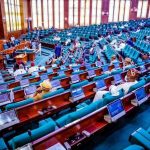In a significant move, the Nigerian government is intensifying efforts to bolster revenue, which is set to substantially decrease the loan-service burden. This shift is anticipated to create a more favorable landscape for Small and Medium Enterprises (SMEs) in the medium term, according to the Head of Nigeria’s Debt Management Office, Patience Oniha.
President Bola Tinubu’s administration is strategically focusing on revenue growth to support an ambitious reform agenda. This agenda is centered around propelling economic expansion in Africa’s largest economy and uplifting 100 million people from poverty. Insufficient tax collection has compelled the government to heavily rely on borrowing for public expenditure, presenting challenges in debt management while funding crucial sectors like infrastructure, education, and healthcare.
Oniha emphasized, “One of the primary objectives of this administration from the outset is to enhance revenue generation. This is of paramount importance for us. We must augment revenue streams.”
Nigeria’s public debt has surged seven-fold to approximately 77 trillion naira ($100 billion) since 2015, as reported by the Debt Management Office. The servicing of these loans consumed a staggering 96% of the government’s revenue in the past year, up from 83% in the previous year.
The World Bank’s data indicates that Nigeria’s revenue-to-GDP ratio in 2021 was merely 7%, placing it among the five lowest worldwide. Despite recent governmental reforms, tax collection still operates significantly below its potential. The World Bank has identified the non-oil revenue potential to be twice the present collection rate.
The ongoing measures to enhance revenue could potentially elevate the ratio to as much as 20% over the next four years, Oniha noted. This would align Nigeria with countries like South Africa and members of the Organization for Economic Cooperation and Development (OECD).
While Nigeria’s debt stock is expected to continue growing, reaching up to 60% of the Gross Domestic Product (GDP), this is in line with nations like Canada. Oniha stressed that the debt profile remains sustainable due to the structure of the loan portfolio.
A significant portion of Nigeria’s external debt (approximately $41 billion in June) comprises concessional and semi-concessional loans, rendering them relatively low-cost. Moreover, these loans do not all mature simultaneously. Over 70% of the nation’s domestic loans are spread across a span of three to 30 years, supported by a well-established domestic bond market, a substantial investor base, and a robust pension-fund industry.









